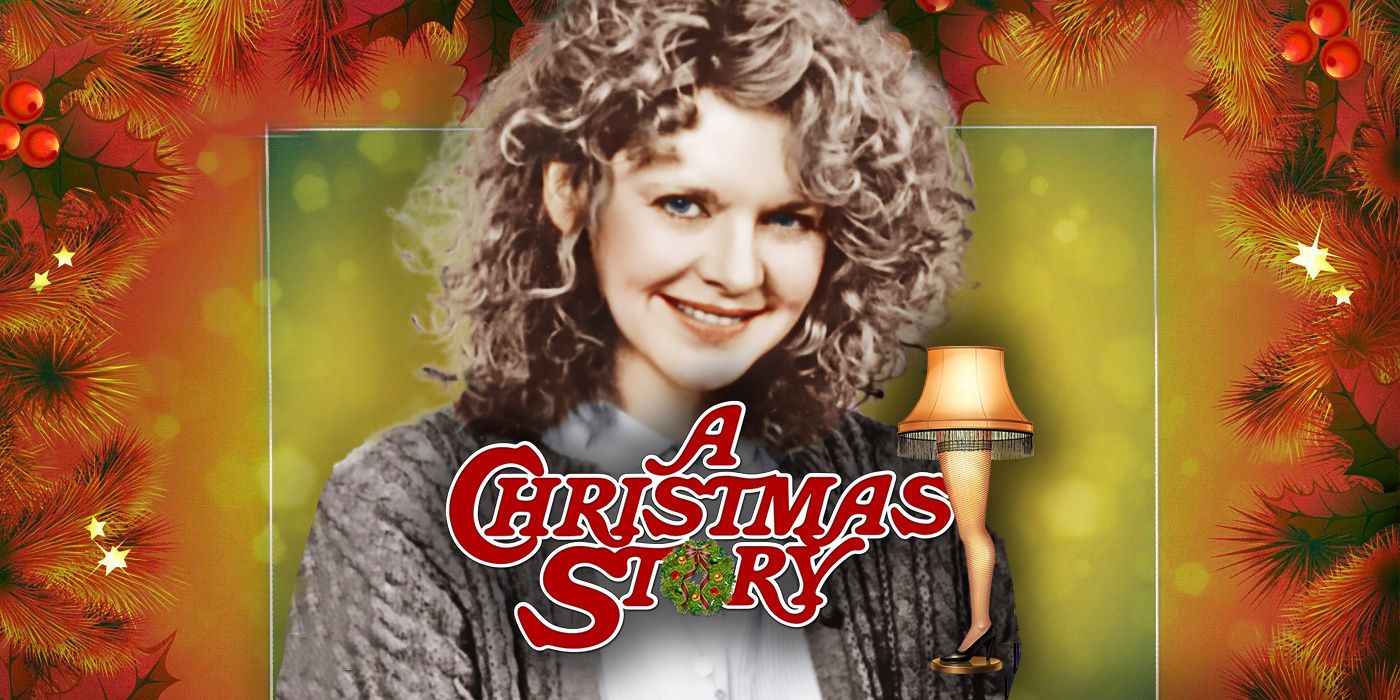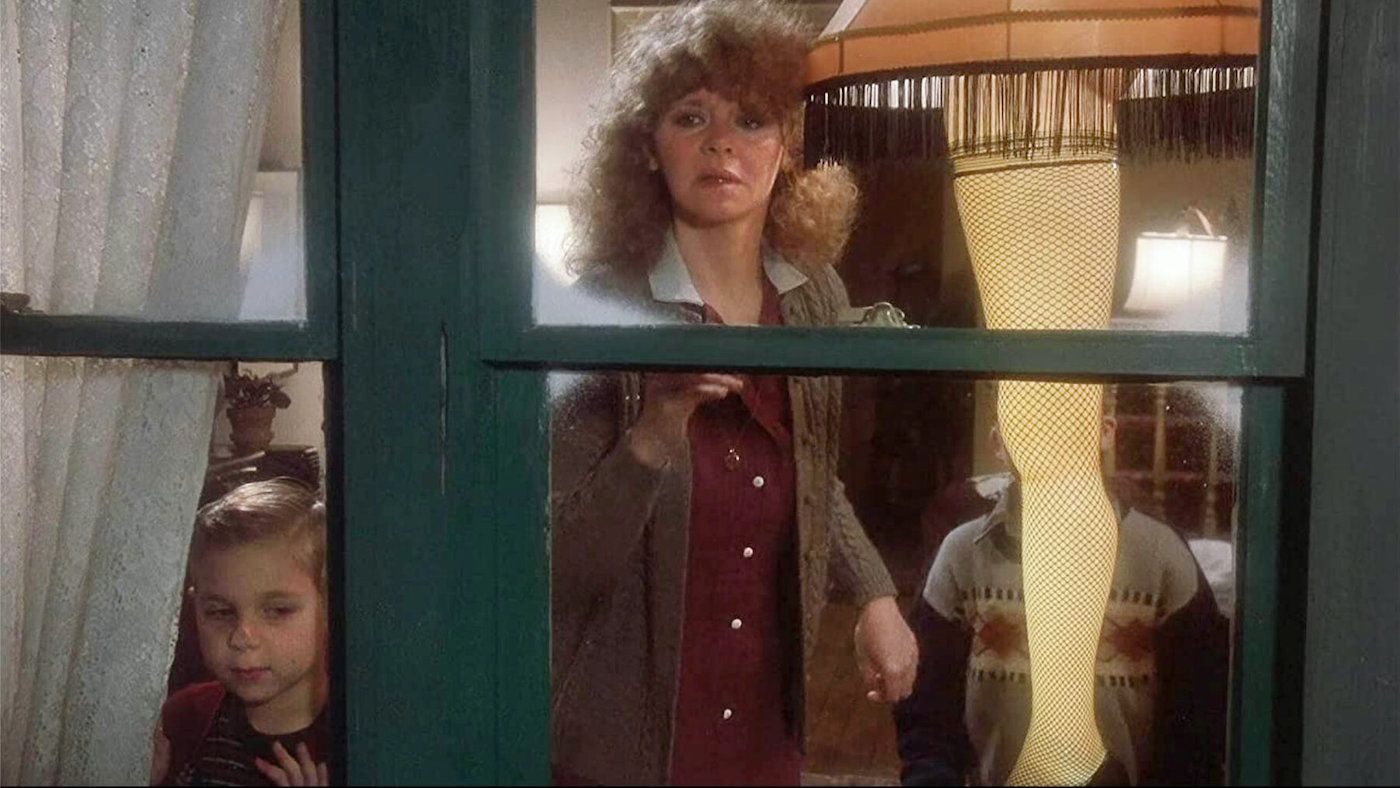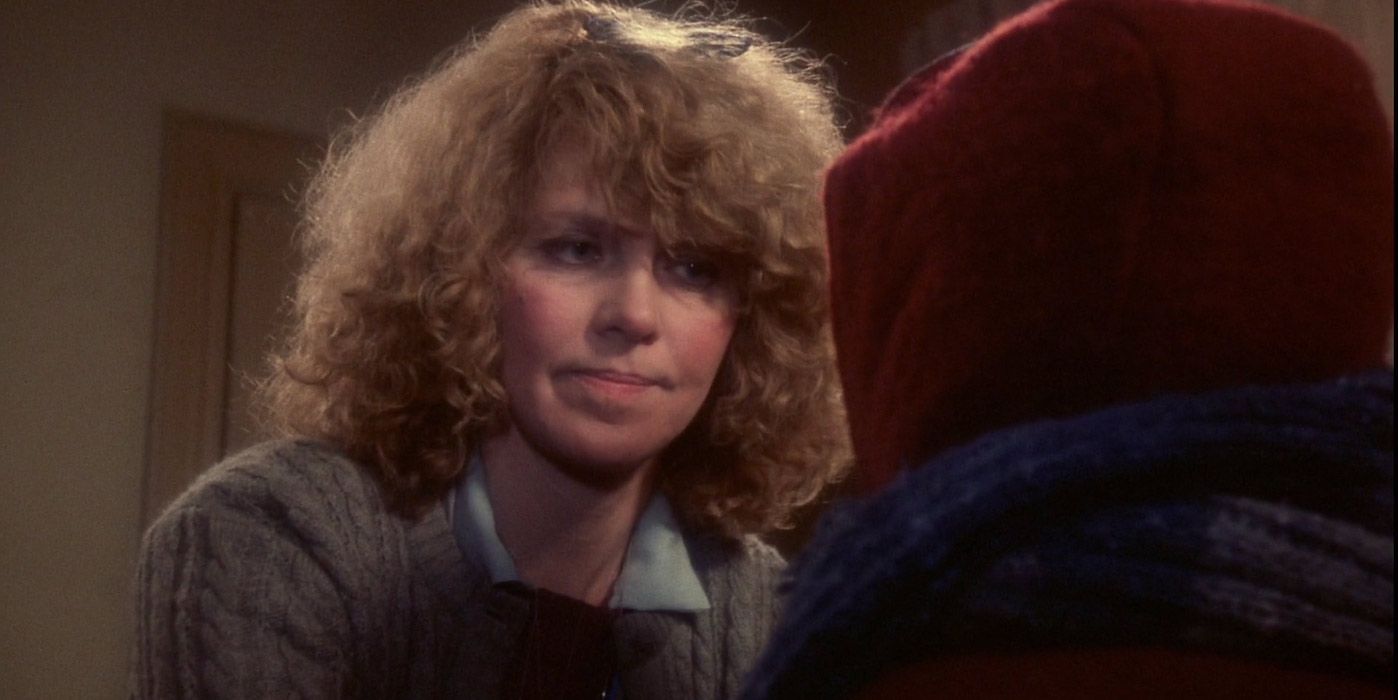If A Christmas Story isn't sitting securely at the top of audience's and critics' lists of best holiday movies, it must be close. The 1983 film about nine-year-old Ralphie Parker's (Peter Billingsley) Christmas wish for a Red Ryder BB Gun was a moderate success upon its initial release (earning just over $2 million domestically), though it was hardly the Christmas classic and holiday staple it has become. Now, A Christmas Story enthusiasts are able to show off their fandom with scores of film collectibles, buy their very own "major award," or even spend the night in Ralphie's actual house. Not to mention enjoying countless warnings of "You'll shoot your eye out!" in TBS and TNT's annual 24-hour marathon of the film that runs from Christmas Eve through Christmas Day.
After countless viewings, it's easy to get swept away in the wonder and innocence of Ralphie's Christmas quest, the hilarity of his brother, Randy's (Ian Petrella), refusal to eat solid food, and the relatable "dad" humor of his Old Man's (Darren McGavin) furnace troubles and turkey skin-snatching antics. But as funny and scene-stealing as these characters and moments are, most members of the Parker family (and the actors who play them) get their fair share of love and praise. However, who doesn't, and is actually who deserves it the most, is Ralphie's mom (Melinda Dillon).
While viewers might take "Mother Parker" for a standard 1930/40s housewife who simply cleans, prepares meals, and keeps her kids in line, it would be a mistake to simplify her importance by relegating her to that role alone. She does single-handedly and selflessly do those things (and cooks plenty of red cabbage), but even more importantly, she is warm and caring, unafraid to get in touch with her inner child, and consistently demonstrates her deep emotional intelligence by showing compassion, sensitivity, and understanding towards Randy and Ralphie. When you consider her role in the film's many vignettes, it's clear that Ralphie's mom is integral to the entire story.
Her choice to be unafraid to bond with her kids is arguably what makes her such a comforting — and crucial — presence. She allows herself to get in touch with her inner child throughout the film, showing her kids by her example that growing up and having adult responsibilities doesn't mean abandoning your innocence. Despite the Parkers not being a particularly wealthy family, she's a character who shows Ralphie and Randy that joy and laughter, not money, are the root of happiness. She frequently lowers herself to their "level" by joining them in a loudly sung rendition of "Jingle Bells" in the car (much to her husband's annoyance), which causes her to burst into a fit of giggles just as much as her kids.
In one of the film's most memorable scenes, her appreciation for child-like humor extends to when she tries to "trick" Randy into eating his dinner by encouraging him to eat like a pig. "This is your trough. Show me how the piggies eat" she goads with a knowing smile. Instead of forcing him to eat or resorting to threats of punishment, she delights in the humor of Randy making a complete mess as he dives mouth-first into his plate of food, getting meatloaf and mashed potatoes all over her table — and himself.
It's also a testament to Melinda Dillon's honest and authentic portrayal of the character that imbues her (and the film itself) with such a deep sense of comfort, child-like wonder, and empathy; all of which continue through the rest of the film. Whether taste-testing a bar of Life Buoy soap after wondering if Ralphie's punishment of the very same thing was too harsh or playing into Randy's innocence and idea of make-believe when he "runs away" to beneath the kitchen sink after becoming afraid that his father is going to kill Ralphie for saying "the queen mother of dirty words", she shows many layers of sensitivity and understanding. In the case of the latter, she not only reassures Randy that that is not the case but also gives him a glass of milk and offers to leave him alone instead of yelling at him and telling him to get out of her kitchen. Rather than allowing herself to show that she is harried with her household chores or kids' petty problems, she instead makes great effort to show her empathetic nature through her willingness to listen, put herself in her kids' shoes, and imagine what they might be feeling before she acts.
While she might break her husband's prized "major award" on purpose, she has the capability for great warmth, especially when it comes to her children. A prime example is when Ralphie gets into a fight with Scut Farkus (Zack Ward) after being antagonized by the neighborhood bully. The normally peaceable Raphie loses himself in a moment of suppressed rage, surprising his friends (and himself) when he lunges at Scut. It's only when Randy gets his mother to intervene that the fight ends. When she finds Ralphie beating up Scut, she doesn't yell or reprimand him for fighting. Instead, she stops to take stock of her son's emotional state. She recognizes the hurt and sadness and tears in his eyes, the simmering rage, the confusion, and pulls him into a warm embrace. "Come on," she says soothingly, "we're going home." It would've been easy for her to give into her own shock or anger at the situation by raising her voice or embarrassing Ralphie in front of his friends with a punishment or stern talking-to, but her restraint and desire to love first and ask questions later perfectly shows the kindness and maternal warmth that radiates from her.
The same can be said when Ralphie receives his Christmas gift from his Aunt Clara. At first, his mom insists on him trying it on despite his old man saying that the pink bunny suit makes Ralphie look like "a deranged Easter Bunny." But eventually, she shows her understanding and empathy for Ralphie's embarrassment about the awful homemade outfit by assuring him that he only has to wear it when Aunt Clara visits. Here, she willingly puts herself in her son's shoes to imagine (and empathize with) his embarrassment rather than exerting her will over him simply because she can.
In the end, Ralphie's mom's selflessness, empathy, and warmth are what arguably foster a sense of Christmas magic in Ralphie and lead him to believe that anything is possible. Without his mother, he might never have believed in the possibility of Santa bringing him his coveted Red Ryder BB Gun. But because his mom consistently uses her words and actions to nurture his youth, Ralphie's innocence is allowed to blossom, leading to his optimism and belief that anything, even something seemingly unattainable as a Red Ryder BB Gun (which he later receives), is possible. Here, Ralphie's mom, not Santa, is the one who instills and delivers true Christmas magic.
While she may first appear to be a regular housewife, such a surface viewing of her character would be doing her (and the film) a great disservice. She's a warm, sensitive, and deeply compassionate wife and mother who solidifies herself as a strong character deserving of more praise. In fact, Ralphie's mom may be a comfort not just for the film's characters, but for viewers as well. During the Christmas season and beyond, when the real world becomes too dark or overwhelming, a dash of motherly warmth just might be the soothing balm that we need to remind us of the inherent goodness of the people around us, and the belief that anything is possible.



